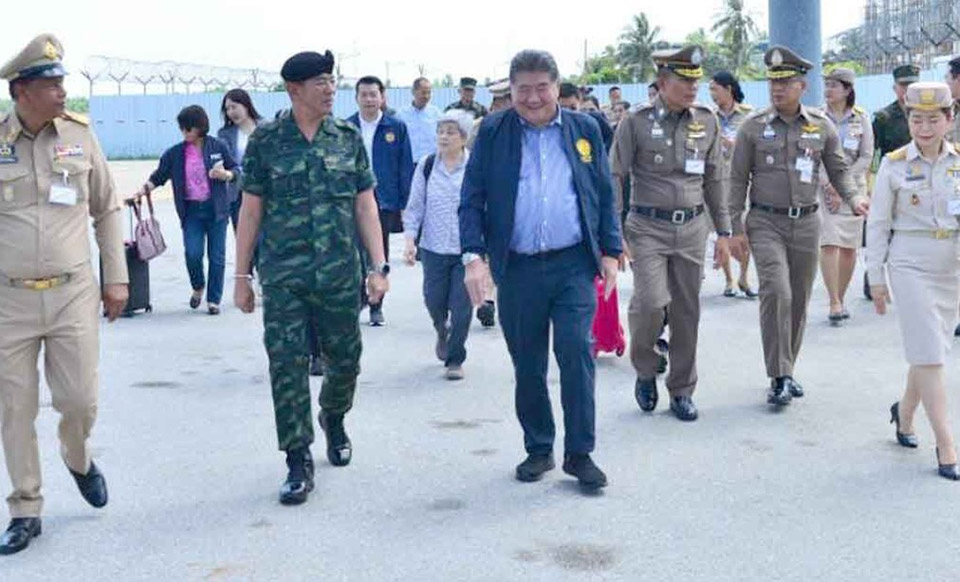
A meeting was held to follow up on the progress of upgrading and developing Thailand’s southern border provinces and their neighboring Malaysian states into twin cities.
Phumtham Wechayachai, Deputy Prime Minister and Minister of Commerce, chaired the meeting during his on-site visit to Su-ngai Kolok Customs Checkpoint in Narathiwat Province.
Minister Phumtham stated that the visit aimed to listen to all sectors, including the government, private sector, public, youth, and religious leaders, to understand the challenges and successes in the area. This will help in adjusting policies to benefit the people the most.
Phumtham emphasized that transforming battlefields into marketplaces is the government’s goal to bring peace to the southern border provinces. Current projects include developing twin cities, upgrading the Su-ngai Kolok Customs Checkpoint, and constructing a second bridge over the Golok River.
This project is expected to take shape by 2026, as budget considerations for 2025 are being finalized. The Southern Border Provinces Administrative Center is driving these initiatives, and all parties are urged to cooperate for the benefit of the southern border and the nation.
Phumtham and his team also inspected the progress of the parallel bridge over the Golok River. Designed to resemble a boat by Malaysia, the project reflects the wisdom of both countries. Progress has been made, with a Thai-Malaysian technical meeting in January discussing site surveys, design adjustments, project details, and timelines.
The Department of Highways is conducting an Environmental Impact Assessment and drafting a joint construction agreement. Since the construction site involves land owned by the State Railway of Thailand and long-standing residents, consultations with local people are necessary to minimize impacts. (NNT)








